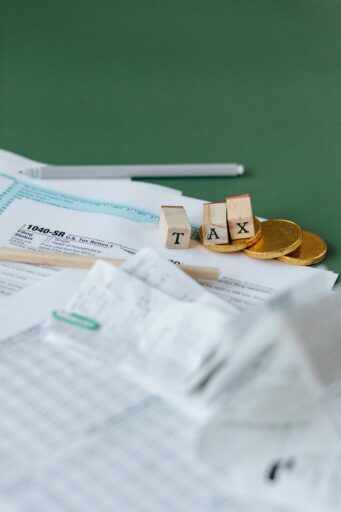Switzerland’s residence permit for financially independent individuals is known as the residence permit without gainful activity.
For those who are financially self-sufficient and not seeking employment, this Independent Means Visa in Switzerland—often tied to the lump sum taxation regime—offers a viable path to long-term residency.
Switzerland is a top destination for affluent non-EU/EFTA nationals who can sustain themselves without working in the country.
This guide’s key topics include:
- What is the Swiss residence program for financially independent individuals?
- What are the different types of residence permits in Switzerland?
- What is sufficient financial means in Switzerland?
- What are the benefits of being a Swiss resident?
My contact details are hello@adamfayed.com and WhatsApp +44-7393-450-837 if you have any questions.
The information in this article is for general guidance only. It does not constitute financial, legal, or tax advice, and is not a recommendation or solicitation to invest. Some facts may have changed since the time of writing.

How many types of visas are there in Switzerland?
Switzerland offers two main visa categories:
- Short-stay (Type C) visa – for tourism, business, or visits up to 90 days within the Schengen Area.
- Long-stay (Type D) visa – required for stays longer than 90 days, such as for work, study, family reunification, or residence without gainful activity (e.g., retirement or independent means).
Once in Switzerland on a Type D visa, foreign nationals are typically issued a residence permit.
These include:
- Permit B – for temporary residence, often issued to individuals under the Independent Means Visa, as well as those studying, working, or joining family.
- Permit C – for permanent residents after meeting residency and integration requirements.
The Independent Means Visa falls under the Type D category and usually leads to a Permit B, granted to financially independent individuals who are not employed in Switzerland.
What is the independent means visa in Switzerland?
The Independent Means Visa in Switzerland is a residence permit available to wealthy non-EU/EEA nationals who wish to live in Switzerland without engaging in any gainful employment.
Officially, it falls under the Swiss residence permit granted to those subject to lump-sum taxation (forfait fiscal), a special tax regime based on living expenses rather than income or assets.
This permit is often issued under Article 30 of the Federal Act on Foreign Nationals and Integration (FNIA), which allows cantonal authorities to grant residence permits under exceptional circumstances, including to financially independent individuals who do not intend to work in Switzerland.
To qualify, applicants must either prove sufficient passive income (such as pensions, dividends, or rental income) or agree to pay an annual tax based on their projected cost of living, which typically starts at CHF 250,000 per year depending on the canton.
Applicants must also demonstrate the ability to support themselves financially and secure suitable accommodation in Switzerland.
This visa is most commonly used by retirees and high-net-worth individuals seeking Swiss residency for lifestyle, tax efficiency, and geographic convenience without the need to work or start a business.
However, the permit strictly prohibits gainful activity.
What is gainful activity in Switzerland?
Gainful activity refers to any form of employment or self-employment conducted within Switzerland.
Holders of the Independent Means Visa are not allowed to engage in gainful activity, meaning they cannot work for a Swiss employer or operate a business in Switzerland.
This visa is strictly for individuals who can support themselves through foreign income, pensions, investments, or savings.
What are the residency requirements for Switzerland?
For Independent Means Visa holders, the key requirement is proof of substantial, passive income or wealth, along with a binding agreement to pay lump-sum tax to the canton of residence.
Overall, individuals must fulfill several core requirements, including:
- Holding a valid visa or residence permit appropriate to the purpose of stay (e.g. work, study, or retirement)
- Registering a local address with the cantonal authorities within 14 days of arrival
- Maintaining Swiss health insurance coverage, which is mandatory regardless of other international plans
- Demonstrating sufficient financial means to support yourself without reliance on public assistance
How much money do you need to get residency in Switzerland?
To get residency in Switzerland under the Independent Means Visa (lump-sum taxation), you typically need to:
- Commit to a taxable base of at least CHF 400,000 per year
- Pay annual lump-sum taxes starting from CHF 250,000, depending on the canton
- Show proof of sufficient passive income (e.g., pensions, dividends, or rental income)
- Demonstrate that you will not work in Switzerland
This means you should have a monthly budget of at least CHF 33,000 and be able to sustain yourself without employment.
What is the lump sum regime in Switzerland?

The lump sum taxation regime is a simplified tax model for wealthy foreigners who do not work in Switzerland.
Instead of being taxed on actual income or wealth, you pay a flat annual tax based on your estimated Swiss living expenses (usually 7x the annual rental value of your home).
It is only available to non-EU/EEA nationals who are not employed in Switzerland.
Participation in this regime is typically required to obtain the Independent Means Visa.
What are the requirements for permanent residency in Switzerland?
To qualify for permanent residency (Permit C), you must usually:
- Reside in Switzerland for 10 continuous years, or in some cases, only 5 years if you’re a citizen of the US, Canada, or EU/EFTA countries, and meet specific integration benchmarks.
- Demonstrate integration into Swiss society, which includes having adequate knowledge of a national language, understanding Swiss customs and laws, and maintaining a clean criminal record.
- Avoid reliance on social welfare or state assistance during your residency.
- Prove financial self-sufficiency and a stable living situation, typically backed by consistent tax compliance and local community ties.
- Show genuine long-term commitment to living in Switzerland. This could include family ties, property ownership, or community involvement.
Independent Means Visa holders may face stricter reviews since they do not engage in gainful activity, but permanent residency is still possible over time.
What are the benefits of having a Swiss residence permit?
- Legal residence in a politically stable, neutral, and secure country with a strong rule of law.
- Access to top-tier healthcare, efficient public services, and a renowned education system.
- Freedom of movement across the Schengen Zone, allowing visa-free travel to 27 European countries.
- Opportunity to apply for permanent residency (Permit C) after several years of continuous residence and integration, and eventual eligibility for Swiss citizenship.
- Potentially favorable tax treatment, particularly under the lump sum taxation regime, which allows qualifying foreigners to pay taxes based on living expenses rather than worldwide income (subject to cantonal approval).
- High quality of life, clean environment, and excellent infrastructure in both urban and rural areas.
What are the disadvantages of having a Swiss residence permit?
- Very high cost of living, especially in major cities like Zurich, Geneva, and Lausanne—housing, insurance, and everyday expenses are among the highest in Europe.
- Strict and detailed immigration rules, including regular permit renewals, comprehensive financial disclosures, and close tax scrutiny, particularly for lump sum taxation applicants.
- Limited access to citizenship or permanent residency for those who don’t meet stringent language and integration requirements.
- Work restrictions: For holders of the Independent Means Visa, employment is not permitted, which can be limiting for younger applicants who may want to launch a business or pursue a career.
- Cantonal variation: Rules and costs can vary significantly depending on the canton, leading to potential legal and tax uncertainty.
Which Swiss Cantons Offer the Lump Sum Tax Option?
Not all cantons participate equally. Popular cantons for lump sum taxation include:
- Vaud
- Valais
- Geneva
- Ticino
- Zug
- Fribourg-
- Lucerne
- Bern
- Neuchatel
- Nidwalden
- Zchwyz
- Glarus
- St. Gallen
- Graubunden
- Thurgau
- Aargau
- Solothurn
- Jura
- Uri
- Obwalden
Each canton negotiates independently, so tax rates and flexibility vary widely.
Urban cantons may impose higher thresholds than rural ones.
Conclusion
The Independent Means Visa in Switzerland is a strategic residency option for financially independent individuals seeking a secure and luxurious European base.
Though it comes with strict non-employment rules and financial thresholds, it offers privacy, tax benefits, and a foothold in one of the most stable countries in the world.
FAQs
Can EU Citizens Apply for the Independent Means Visa?
EU/EEA citizens generally do not need to apply for the Independent Means Visa, as they benefit from the Agreement on the Free Movement of Persons (AFMP) between Switzerland and the EU.
This agreement allows EU/EEA nationals to reside in Switzerland with fewer restrictions, provided they can prove they are financially self-sufficient and have adequate health insurance.
While the Independent Means Visa is primarily designed for non-EU/EEA nationals, wealthy EU citizens can still access similar tax and residency benefits through alternative routes.
Does Switzerland have a dependent visa?
Yes. Spouses and children of residence permit holders can apply for dependent visas.
For Independent Means Visa holders, dependents must also be financially supported and not engage in work.
Is living in Switzerland expensive?
Yes. Switzerland is consistently ranked among the world’s most expensive countries.
Rent, healthcare, food, and services can be costly.
Wealthy individuals often balance these costs with the country’s safety, services, and lifestyle advantages.
Pained by financial indecision?

Adam is an internationally recognised author on financial matters with over 830million answer views on Quora, a widely sold book on Amazon, and a contributor on Forbes.



